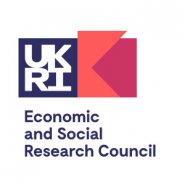
Can adaptive language save lives? Improving uptake of cervical screening in ethnic minority populations
Start date
November 2022End date
March 2025Overview
Ethnic minority populations are currently underrepresented in their engagement with NHS screening appointments. For example, engagement with cervical screening has been shown to be lower for eligible patients from BAME backgrounds.
This ESRC IAA project has built a powerful partnership between partners SPRYT and the Islington GP Federation, to increase engagement in cervical screening of ethnic minority patients in Islington, London, through an intelligent appointment scheduling system developed by SPRYT.
By investigating patient perceptions of and patient interactions with the virtual receptionist (called ‘Asa’) who represents the front-end of the system, the project has helped inform proposals for how Asa can be optimised to better engage ethnic minority patients in future, through adaptive language.
Team

Principal Investigator
Dr Doris Dippold
Associate Professor in Intercultural Communication
Biography
I am Associate Professor in Intercultural Communication at the School of Arts, Humanities and Creative Industries and Interdisciplinary Principal Fellow of the Institute for People-Centred AI. My career in higher education so far has taken me to three continents and five countries (Germany, USA, China, Luxembourg, UK).
My research interests focus on the following, often in combination
- Human-AI Interaction
- Chatbots
- Conversation Design
- (Intercultural) Pragmatics
- Interactional Sociolinguistics
- L2 Learning and Teaching
- Internationalisation of Higher Education
- English as medium of instruction
- English as a lingua franca
- Classroom interaction

Co-Investigator
Dr Freda Elizabeth Mold
Senior Lecturer - Digital Health in Primary & Community Care
Biography
I received my PhD from the University of Surrey in 2001 and worked as a post-doctoral researcher at King's College London for 9 years, initially in Public Health Sciences and then in the Florence Nightingale School of Nursing and Midwifery.
Since leaving Kings' I worked for NHS Evidence (previously part of the National Institute for Health and Care Excellence) conducting rapid online reviews.
I joined The University of Surrey again in 2010, working as a Research Fellow in the Department of Health Care Management and Policy. At this time I undertook a large scale systematic review investigating patients access to their electronic medical records and online services in primary care.
Over the years I have been fortunate enough to work on various mixed methods research projects, focusing on long-term conditions and access to services. Studies included the investigation of factors impacting on patients' access and uptake of after stroke services in London, the care of ethnic elders in care homes, and early interventions for frail older people.
Since moving to Health Sciences I have continued to follow my research interest in access to services for specific patient groups in relation to primary/ community care delivery.
Partners
This ESRC IAA Project is a partnership between The University of Surrey and Spryt.
Impact
Outputs
Doris Dippold worked with the Islington GP Federation and SPRYT to advise on adaptive language use and to contribute to interviews with healthcare workers and patients, analysing data and supporting the creation and implementation of a WhatsApp based AI chatbot for NHS patients to trial.
Surveys and interviews with 300 patients revealed insights into both linguistic and cultural reasons for why patients engage or do not engage with cervical screening offers. They included a lack of interactivity and ability to ask questions, for conversational AI this includes the way an invitation is issued (whether patients perceived that there is too much pressure put on them to attend an appointment), and considerations of ethicality (being contacted by AI).
A report with recommendations from Dr Dippold's analysis, including transcribed interviews with patients and reviewing of 100 conversations, was also produced and shared with SPRYT to inform the ongoing evolution of Asa's functionality, for example in helping the chatbot to understand patient intent and removing certain barriers to engagement.

“What I liked about Asa was that Asa kind of came into my infrastructure in my world like my little ecosystem of how I do things. So she kind of came into my WhatsApp.”“I know she's not human, but like I felt quite a lot of gratitude. So I actually said like, thanks, Asa, I thought that was great. I didn't have to call my surgery or do anything. And that made me happy.” - Patients
Outcomes
Doris's recommendations on removing unnecessary text and clarifying messaging, led to a 25% increase in engagement with a second cohort of patients.
There was also a proven 40% increase in the use of Asa's question-answering functionality, with patients asking questions like, "When will I get the results" and "What do I need to bring to the appointment" and this increased engagement unlocked valuable medical administrator time, allowing them to focus on other tasks.
The implementation of Asa for cervical screening bookings at Clerkenwell GP Practice led to a 160% increase in the booking conversion rate, a 30% reduction in communication costs vs. SMS and a 22% reduction of admin time saved by reducing inbound / outbound call volume. With 15% of patient queries occurring outside regular hours, Asa has given patients greater control over their health at their convenience.

"The ESRC IAA funding was instrumental in enabling the outcomes of this project. Without financial support of this kind to engage a research assistant I would have faced significant challenges in gaining ethical clearance and engaging with partners. I have been able to experience first hand the complexities of integrating new technological applications within healthcare settings and, more broadly, this project has encouraged me to consider my future impact on the conversational AI industry." - Dr Doris Dippold